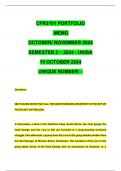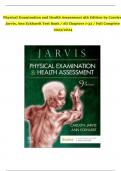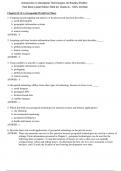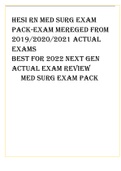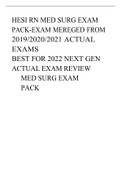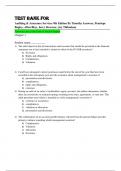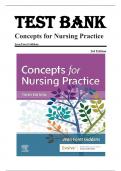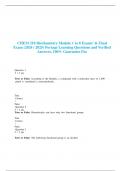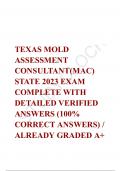Exam (elaborations)
CPR3701 PORTFOLIO MEMO - SEMESTER 2 - 2024 - OCTOBER/NOVEMBER - UNISA - DUE DATE :- 15 OCTOBER 2024 (FULLY REFERENCED! DISTINCTION GUARANTEED!)
- Course
- Criminal procedure
- Institution
- University Of South Africa (Unisa)
CPR3701 PORTFOLIO MEMO - SEMESTER 2 - 2024 - OCTOBER/NOVEMBER - UNISA - DUE DATE :- 15 OCTOBER 2024 (FULLY REFERENCED! DISTINCTION GUARANTEED!) Questions NB: PLEASE NOTE THAT ALL THE QUESTIONS BELOW REFER TO THE SET OF FACTS SET OUT BELOW: In Vermeulen, a town in the Northern Cape, South Af...
[Show more]
